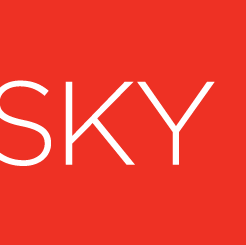The current landscape of recruitment is highly competitive, and as a shrewd HR professional, you’re pulling out all the stops to meet your goals. You're incorporating new emerging hiring technologies, optimizing your syntax in your listings, and appealing to passive candidates.
Pre-sourcing is one of these core optimizations. Pre-sourcing is not a single strategy, it's a way of changing your hiring criteria to become much more results-driven. In other words, pre-sourcing involves you sifting through your candidates in advance, and learning to anticipate who will be an excellent fit, and putting them on a fast-track through your hiring pipeline. When done correctly, pre-sourcing can help you acquire talent and grow your enterprise in the long term.
What makes pre-sourcing effective?
When you pre-source candidates, you’re thinking about real performance objectives. You’re considering what kinds of tasks the candidate will need to work on, what they will contribute to, and how they will grow within your organization. Pre-sourcing is a bit more pragmatic than other hiring strategies. Instead of searching for the “perfect” candidate in terms of their skills, education, or experience, you’re trying to predict how they’ll function on a day-to-day basis. That’s ultimately what determines a candidate's productivity, fit, and performance. When speculating about how well a candidate will gel within your organization, you should ascertain your performance objectives from the responsible parties within your organization. Go to the department that you’re hiring for, ask what they need, and adjust your criteria accordingly. This means that you don’t have to guess what your hiring needs are—you’ll know in advance.
Pre-sourcing involves making decisions that may seem counterintuitive, or even risky. This is because you’re oftentimes looking for ineffable qualities that candidates might not even know about, let alone think to showcase on a resume, where candidates tend to only list “hard” skills. These soft skills include adaptability, flexibility, and ability to acquire new skills fast. HR departments may float candidates who they believe to have these qualities, even if their exact skill-sets aren’t a perfect match. You might highlight candidates who have less experience but have exceeded expectations for their age, or changed jobs within a short amount of time. While they may be seen as high-risk, these candidates can have a lot of talent and have been changing jobs because their previous employer wasn’t letting them reach their full potential or take on new responsibilities.
Putting it all together
Integrating pre-sourcing into your hiring strategy means increasing your own effort on the front-end. Pre-sourcing means making educated, but incomplete assumptions about who you think will be the best fit for your organization, even if they don’t have 100% of the necessary skills for the position. One crucial benefit of pre-sourcing is that you also save a lot of time. An effective pre-sourcing strategy will mean far less time spent sorting through resumés. You’ll also avoid wasting time chasing candidates who are never going to be finalists, or who will flounder or leave your organization, leaving you right back where you started. Lastly, since pre-sourcing allows you to schedule interviews and make hires faster, it will decrease the chances of candidates ghosting during the hiring process.

